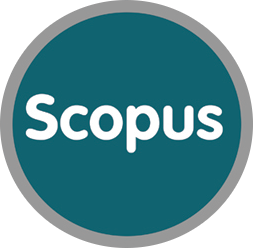Discurso y trabajo de la economía colaborativa. El caso de Blablacar
DOI:
https://doi.org/10.5944/empiria.54.2022.33735Palabras clave:
Blablacar, economía colaborativa, etnografía virtual, trabajo oculto, confianza, Sharing Economy, virtual ethnography, hidden work, trustResumen
La importancia creciente del campo de la economía colaborativa está asociada al crecimiento de las plataformas tecnológicas que desarrollan su modelo de negocio en este sector. Estas compañías ocupan una posición central en este espacio y acumulan cada vez más poder para definir el espacio de posibilidades de las prácticas que caben en la economía colaborativa. De todas ellas, la compañía europea Blablacar parece ocupar por derecho propio un lugar de privilegio en este sector. Su posición se ve reforzada por un discurso impregnado de la retórica colaborativa. Este factor, el discurso, es una seña de identidad de estas compañías. Su objetivo es tratar de encuadrar el modelo de negocio en un espacio diferente al del capitalismo más convencional. Sin embargo, nuestro análisis de este discurso nos permite identificar unos presupuestos filosóficos e ideológicos muy alejados de los valores altruistas. Por el contrario, induce a realizar una serie de tareas de vigilancia de los usuarios entre sí. En segundo término, el análisis por medio de etnografía virtual de sus sistemas de reputación nos permite señalar la importancia del trabajo oculto sobre el que se sostiene el sector. Se analizan las distintas dimensiones de este trabajo oculto. Finalmente, se sugiere la necesidad de, si se quiere conservar el rigor, dejar de emplear cualquier referencia al término colaborativo en los análisis de este plataforma o de otras basadas en condiciones similares.
The growing importance of the field of the collaborative economy is associated with the growth of the technological platforms that develop their business model in this sector. These companies occupy a central position in this space and accumulate more and more power to define the space of possibilities of the practices that fit in the collaborative economy. Of all of them, the European company Blablacar seems to occupy a privileged place in this sector. His position is reinforced by a discourse steeped in collaborative rhetoric. This factor, the speech, is a hallmark of these companies. Its objective is to try to frame the business model in a different space from that of more conventional capitalism. However, our analysis of this discourse allows us to identify philosophical and ideological assumptions far removed from altruistic values. On the contrary, it induces a series of surveillance tasks between users to be carried out. Second, the analysis by means of virtual ethnography of its reputation systems allows us to point out the importance of the hidden work on which the sector is sustained. The different dimensions of this hidden work are analyzed. Finally, it is suggested the need, if rigor is to be preserved, to stop using any reference to the term collaborative in the analyzes of this platform or of others based on similar conditions.
Descargas
Descargas
Publicado
Cómo citar
Número
Sección
Licencia
Derechos de autor 2022 Empiria. Revista de metodología de ciencias sociales

Esta obra está bajo una licencia internacional Creative Commons Atribución-NoComercial-CompartirIgual 4.0.
Los autores que publican en esta revista están de acuerdo con los siguientes términos:a) Los autores conservan los derechos de autor y garantizan a la revista el derecho de ser la primera publicación del trabajo al igual que licenciado bajo una Licencia Internacional Creative Commons CC BY-NC-SA 4.0.
b) Se permite y se anima a los autores a difundir electrónicamente las versiones pre-print (versión antes de ser evaluada) y/o post-print (versión evaluada y aceptada para su publicación) de sus obras antes de su publicación, ya que favorece su circulación y difusión más temprana y con ello un posible aumento en su citación y alcance entre la comunidad académica.









